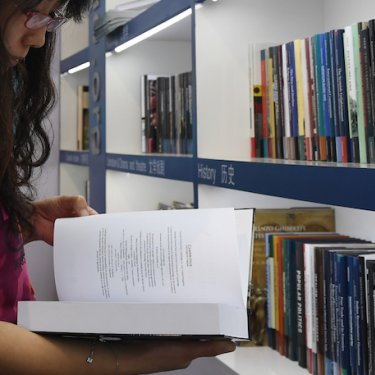China censors German publishing house

Just months after the Cambridge University Press scandal, the German publishing house Springer Nature has likewise yielded to the Chinese government request to censor itself.
The owner of the science magazines Nature and Scientific American, as well as the Journal of Chinese Political Science and the publishing house Palgrave Macmillan, Springer Nature describes itself as “the world’s largest academic book publisher” and a “pioneer in the field of open research.”
Springer Nature confirmed last week that it has blocked online access to around "one percent" of its articles from within China. The censorship affects such sensitive subjects – sensitive for the Chinese authorities – as Taiwan, Tibet, human rights and the biographies of Chinese leaders. The company said the choice of the articles was left to the Chinese authorities themselves, which takes censorship to a new level.
The announcement comes less than three months after the Cambridge University Press, another venerable publishing house, reported that, at the Chinese government’s request, it was blocking online access from within China to 300 articles in the archives of its China Quarterly journal.
After a storm of protests, the CUP eventually backed down and restored access to all the articles, but not before its reputation took a big knock. Another CUP publication, the Journal of Asian Studies, also reported being pressured by the Chinese authorities.
Dangerous precedent
“This censorship from Beijing sets a very dangerous precedent for the academic world,” said Cédric Alviani, the head of RSF’s East Asia bureau. “Soon, the Chinese government will no longer need its Great Firewall to prevent its citizens from accessing unwanted information, because it will have removed it from the source.”
President Xi Jinping, who has just been awarded another five-year term, has set about bringing the academic world to heel after previously gagging journalists and bloggers during his first term.
During the Beijing International Book Fair in August, RSF urged international publishers not to get involved in the Chinese government’s censorship because this would just encourage the regime to escalate its demands.
China is ranked 176th out of 180 countries in RSF’s 2017 World Press Freedom Index.



